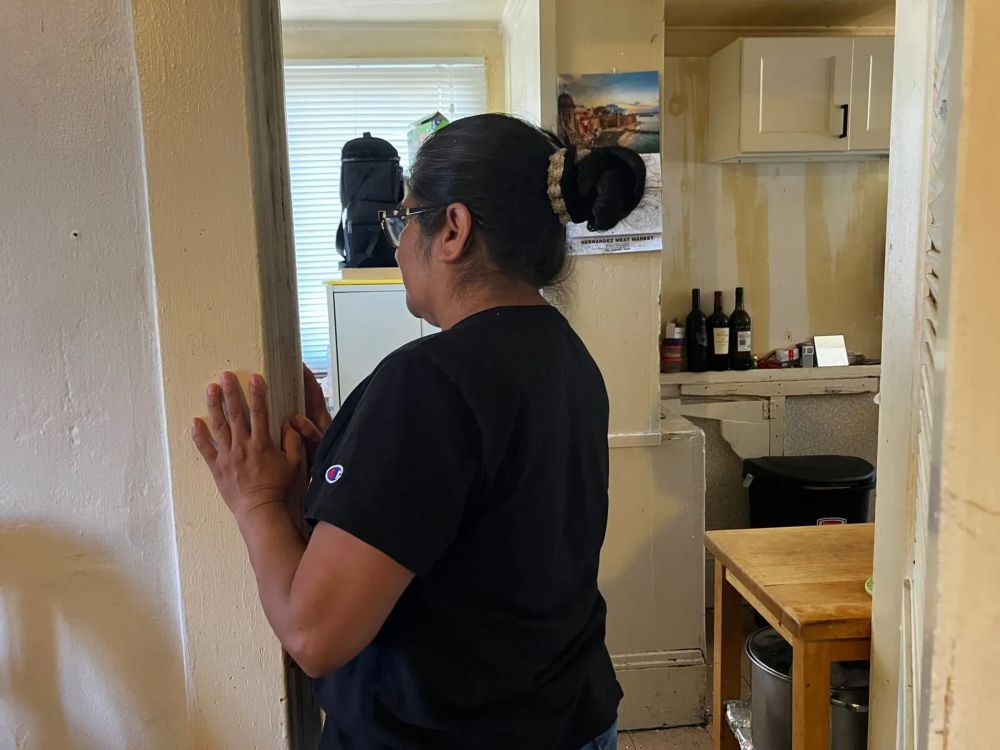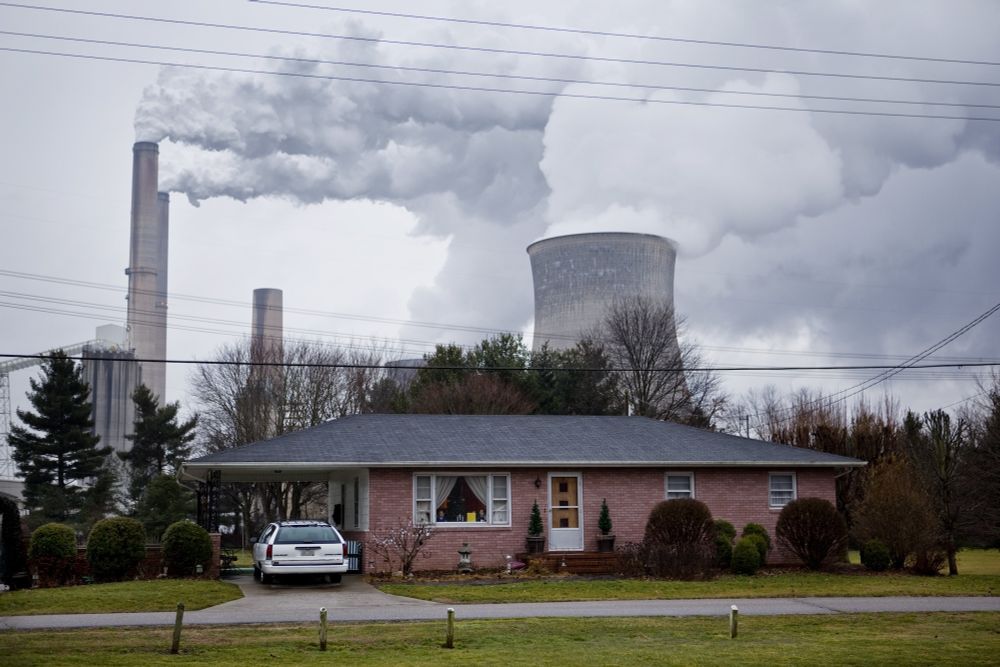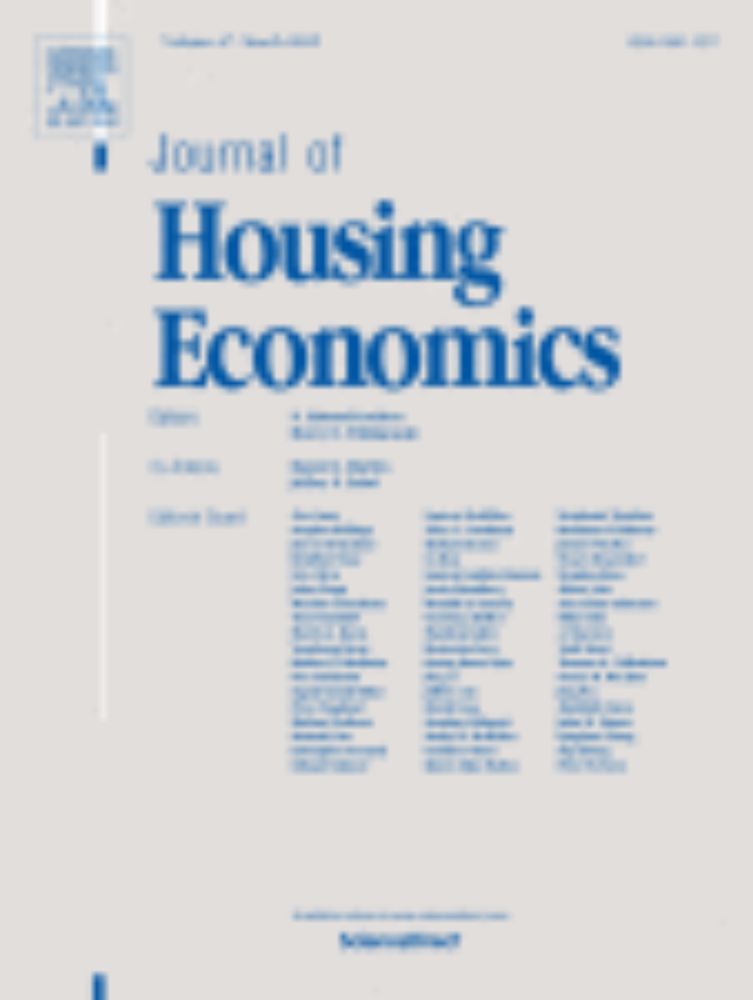
The hallways of apartment buildings have become a new front in the climate fight. Read more in my new piece w/ @taraghuveer.bsky.social in @forgeorganizing.bsky.social
forgeorganizing.org/article/as-c...
@hjacobcarlson.bsky.social
Assistant Professor at Kean University, Social Housing Development Authority, "Housing is a Social Good" (2026)-@UChicagoPress https://www.hjacobcarlson.com/

The hallways of apartment buildings have become a new front in the climate fight. Read more in my new piece w/ @taraghuveer.bsky.social in @forgeorganizing.bsky.social
forgeorganizing.org/article/as-c...

On the corresponding author's website, they have a link to the paper, as well as an FAQ debunking critics. Their findings are quite robust.
sites.google.com/site/johnnel...
Awesome new report by Jacob Udell and @ruthygourevitch.bsky.social on the rise of multifamily distress.
If we had an SHDA, we'd be ready to convert these to permanently affordable housing
Financial distress in the multifamily market is on the rise in the United States: Multifamily loan delinquencies are at their highest rate in 10 years, having nearly doubled in the last year alone.
13.11.2025 14:50 — 👍 20 🔁 7 💬 1 📌 4
More than 5,000 rent-stabilized units connected to the Pinnacle Group are going up for auction in 2026.
Residents are warning would-be buyers not to overlook the years of disrepair that made those units unlivable.
Read their story: bit.ly/47EBZYw
#HousingJustice #RentStrike
Oh dear god no
07.11.2025 18:09 — 👍 4 🔁 1 💬 1 📌 0
Published my first Op-Ed w/ Professor Ed Goetz on how the national narrative about Minneapolis misses how zoning and market rate housing are necessary but not sufficient to help lower-income renters 🧵 www.startribune.com/twin-cities-...
31.10.2025 17:33 — 👍 55 🔁 21 💬 1 📌 1No policy is perfect. The same policies that allow for tenant/union involvement also allow for affluent homeowners to block things. In the end, it all depends on the strength of movements. Luckily, the NYC tenant movement has been racking up wins for the past 6 years.
31.10.2025 16:43 — 👍 1 🔁 0 💬 0 📌 0The future Mayor @zohrankmamdani.bsky.social will lead the most pro-tenant, pro-union, pro-social housing administration in a generation. This will allow them to build lots of social housing, faster.
31.10.2025 16:43 — 👍 1 🔁 0 💬 1 📌 0This is not a YIMBY argument for "let the market solve it". It's about tipping the scales to make social housing development easier and overcoming affluent neighborhoods that block affordable housing.
31.10.2025 16:43 — 👍 1 🔁 0 💬 1 📌 0
I know this is a controversial one, but here is me and Gianpaolo Baiocchi making the case for voting yes on NYC ballot proposals 2-4.
www.nydailynews.com/2025/10/31/y...
Grappling with something like this now. I'm not clear if he's saying, once you have viable future in play, then do "material interests" make sense? Or never?
RU are supposed to be viable futures, and I do think material interests are at stake (albeit complex/contradictory and not deterministic)

Think federal government housing aid is focused on low-income families & largely funded by the Department of Housing & Urban Development?
Think again.
In new work @urbaninstitute.bsky.social, we provide a comprehensive account of the US government's many housing supports, which go far beyond HUD 🏘️

The city failed this family, just as it's failing to hold bad landlords accountable.
Those days will end.
We will rebuild the Mayor’s Office to Protect Tenants—a longstanding tool of City Hall that has been defunded and deprioritized.
And it will finally have real teeth.
I was back at 26 Federal Plaza today, where an ICE agent violently threw this bereft woman to the ground in front of her kids. She had not touched him. She did not pose any threat. She had to be taken to the hospital. (🎥: Elias Eliahu)
25.09.2025 18:03 — 👍 28209 🔁 14122 💬 5770 📌 4065
Zohran at a seat at the front of a larger room, with people seated at tables around him.

Group photo of Zohran with elected officials and activists.
Started the day at the @weact4ej.bsky.social / NAACP breakfast in Harlem for an important discussion about environmental justice, housing, civil rights and the future of our city.
20.09.2025 21:17 — 👍 730 🔁 86 💬 8 📌 4🚨 New paper: “Does Rent Control Turn Tenants Into NIMBYs?” in the Journal of Politics (JOP)
(joint work with @anselmhager.bsky.social and @hannohilbig.bsky.social)
👉 Have a look over here: www.journals.uchicago.edu/doi/10.1086/...
Most important findings in this thread:
1/11

In a world riven by inequality and devastated by climate + ecological crisis, what would it take for "green industrial policy" to empower the working class in Global North + South, and be truly green?
New @cplusc.bsky.social report by me and Isabel Estevez (1/3) t.co/78sQQe4d1g

This is great! Looking forward to using it.
To your great points on scale and the changes over time and space, here's a brand new one looking at the past 120 years and the growth of macro-segregation. doi.org/10.1093/sf/s...
omg, I've banged my head so much with all that, this is amazing
05.09.2025 16:15 — 👍 1 🔁 0 💬 0 📌 0
An apartment complex. A headline reads: "Did Switzerland Solve The Housing Crisis?"
The way that housing co-ops work in Switzerland may seem foreign to many. But the central idea is simple: What if homeownership had no profit motive and no capital gains? Advocates say their model could reshape how the world thinks about affordable housing. www.nytimes.com/2025/08/26/r...
30.08.2025 22:05 — 👍 6278 🔁 1576 💬 259 📌 150
This is absolutely vile
oaklandside.org/2025/07/10/f...
So disappointed in this move from Randi and AFT. This is not the orientation that labor needs to be adopting towards AI. Between this, and the AFL-CIO moving to invest in data center projects in places like Wisconsin, we are removing one of the most effective AI countergovernance institutions.
11.07.2025 17:03 — 👍 113 🔁 30 💬 7 📌 2As a card-carrying AFT member, this is a slippery slope to undermine our power as workers. And its going to be worse for students. The dream of these people have students do all their learning from AI chatbots, and turn us teachers into tech support at best.
11.07.2025 21:07 — 👍 2 🔁 0 💬 0 📌 0
Hope and solidarity won tonight, and will win again in November.
Congratulations, @zohrankmamdani.bsky.social

Zohran looking out on a victory night crowd.
In the words of Nelson Mandela: it always seems impossible until it’s done.
My friends, it is done. And you are the ones who did it.
I am honored to be your Democratic nominee for the Mayor of New York City.

As a result of significant omissions, Klein and Thompson fail to convey the risks of overcorrecting in the opposite direction: a plain-bagel liberalism that simply hands money over to the private sector with very few or even no conditions at all.
29.05.2025 22:36 — 👍 11 🔁 3 💬 0 📌 1
More barbaric plans from this administration
www.nytimes.com/2025/04/17/u...

Essential new evidence about rent control on cities throughout the US from my colleagues at @urbaninstitute.bsky.social.
Rent control:
—Is associated with a net reduction in rental housing availability
—BUT is also associated with increase in units affordable to extremely low income households